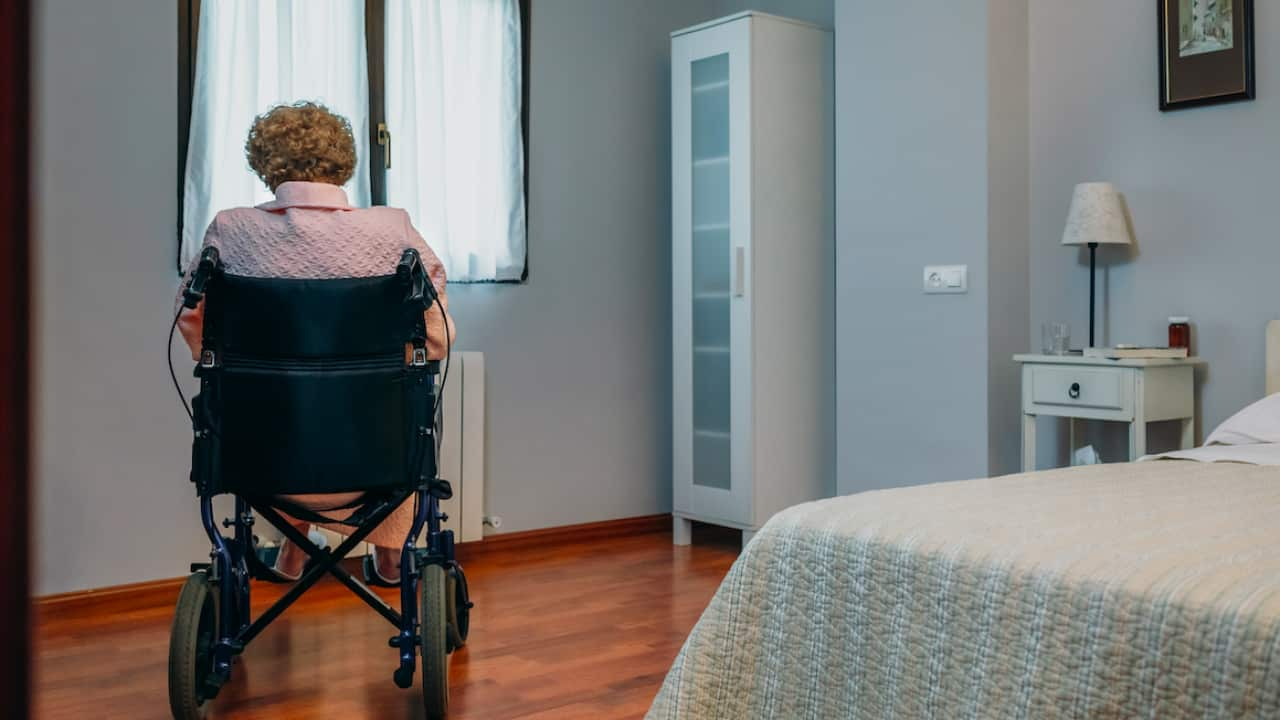Organisations behind a multilingual campaign to highlight the issue of elder abuse say the issue is getting worse due to the coronavirus pandemic.
Respect Victoria chief executive Tracey Gaudry told SBS News that increased financial pressures on families during the crisis had heightened the risks faced by older Australians.
“People may have lost their jobs, may be moving back into the home place, the instances of exploitation and family violence can heighten. It can be emotional violence, it could be financial violence and it could be coercive,” she said.
The group is behind the Respect Older People, Call It Out campaign, which launched earlier this month with ads in multicultural convenience stores and across multilingual radio programs.
The ads are running in Greek, Italian, Arabic, Vietnamese as well as Mandarin and Cantonese.
Ms Gaudry said it was essential to ensure older Australians from all background had access to the information, with 41 per cent of older Australians being born overseas.
“It’s particularly important to get this message out to multicultural and migrant communities, because if you are from that background, language can be a barrier to get help,” she said. Recent studies suggest that up to 14 per cent of older Australians experience elder abuse.
Recent studies suggest that up to 14 per cent of older Australians experience elder abuse.

Ads were launched today in six different languages. Source: Supplied
NSW Senior Rights Service chief executive Russell Westacott said financial abuse was the most common form of elder abuse.
"It can be a family agreement, like 'Mum, why don't you move into the downstairs area at our home, sell your home, help pay off our mortgage and we'll look after you,' and then in three to six months’ time, that relationship turns sour, they ask Mum to move out and there's a family agreement that's been in place that's only verbal - nothing in writing,” he said.
“Elder abuse is so stigmatised and because it is perpetrated by family members, people don't want to talk about it,” he added.
Australia's Age Discrimination Commissioner Dr Kay Patterson said abuse can take many forms.
“Elder abuse can be physical, emotional, financial; it can also be, sadly, sexual or neglect. And also we now know that people are having their medication stolen, or having medication withheld from them. It takes many forms,” she said.
Lawyer Ali French, who works with the financial abuse team at Redfern Legal Centre in Sydney, said often people don't realise they're victims of financial abuse.
"The clients that we see at the financial abuse service have been in relationships with a person they have trusted, often for many, many years. You don't think that someone that you love and care about and that loves and cares for you should financially abuse and control you to the point you have no money,” she said.
“So I think coming to the realisation that that’s the type of relationship you’re in, is really difficult and helping clients recognise that it’s not their fault is one of the important parts of the service.”
June 15 is the United Nations' World Elder Abuse Awareness Day.
Older Australians who are experiencing elder abuse, including those from migrant communities can contact the national hotline on 1800 353 374. Interpreters are available.



